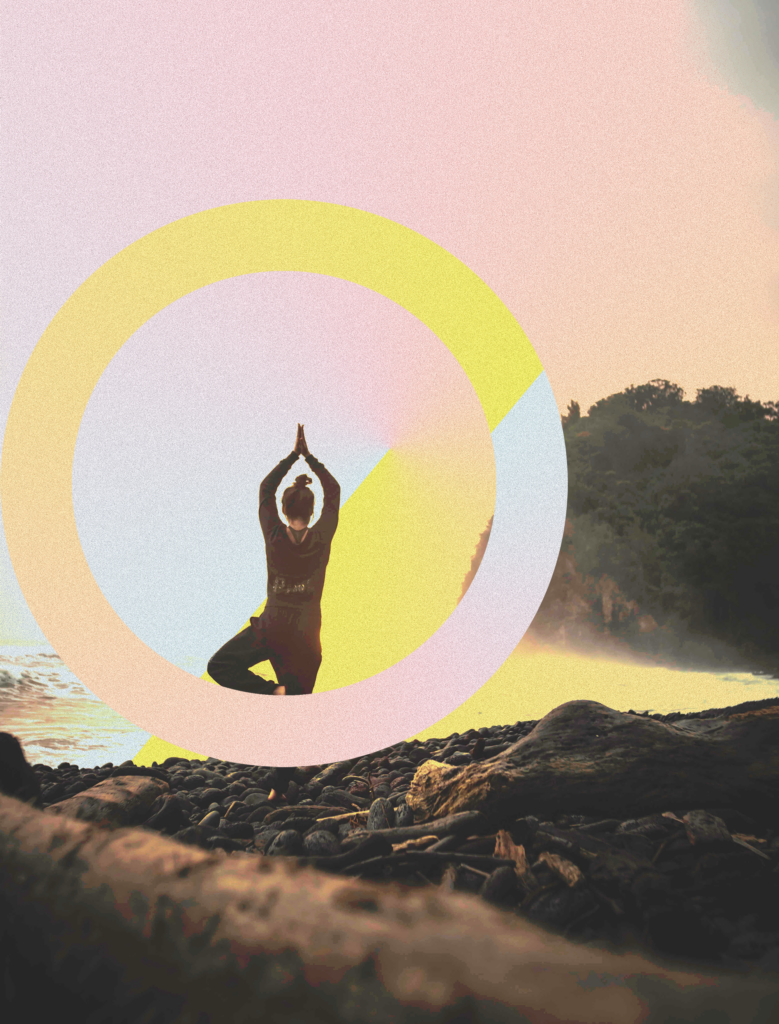Written by Katie McNichol, M.S.; LMHC
Stress in today’s culture is unavoidable. We all deal with it. Some handle it better than others, but at some point in your life you will encounter stress, and it is important to understand how stress affects your mental health as well as how to manage your reaction to it. There is a newer method of treatment for stress that is gaining popularity, and it is the idea of Lifestyle Medicine.
Lifestyle Medicine is defined by the Journal of American Medical Association “as evidence-based practice of assisting individuals and their families to adopt and sustain behaviors that can improve health and quality of life.” Sounds pretty broad? It is. However, as you dig deeper into this concept, the preventative and restorative nature of the techniques used within Lifestyle Medicine can have profound effects and influence on learning how to manage your stress and your emotions.
The beauty of this theory is the uniqueness to each individual and the assistance of experimenting and building your life around the people, things, beliefs, and experiences that improve, reduce, and prevent stress overload, especially stress that can lead to disease. Your overall health and mental health are connected. They cannot be separated. So, understanding how they impact one another is vital to good mental health. For example, many digestive issues are linked to stress, anxiety, and depression. When you treat one, you are often treating the other. So it is crucial to consider your lifestyle in learning to manage or even cure the symptoms.
As a licensed therapist, I explore my clients’ medical history because often there are correlations to the stress, anxiety, and depression they are experiencing. We also assess their relationships, environments, interests, habits, and beliefs about themselves and the world. All of these elements are relevant to the quality of their mental health. Lifestyle Medicine considers a variety of factors in a person’s life. However, the following is a list of the most common to reflect on and explore in your own life, as well as suggestions for cultivating them to improve your overall mental health.
NUTRITION
We have heard this taught over and over again: “You are what you eat.” And there is actual truth to that statement. Nutrition science is more solid than it has ever been, and the link to food and mood has been proven. What you eat directly affects how you feel. For instance, those struggling with depression tend to show a strong link to high carbohydrate intake. You want to slow down and consider this: how is the food you are eating making you feel? Am I tired, sluggish, energized, still hungry, overweight, etc.? Start reducing the foods that are making you feel physically terrible and you will notice an increase in brain health.
REFLECTION QUESTION:
After taking an honest assessment of the food I am eating, what is one thing I can begin to change that will directly impact my emotions and mood thus improving my overall mental health?
 FITNESS
FITNESS
Exercise is still one of the top treatments for anxiety, stress, and depression outside of therapy and medication (when necessary). The Mayo Clinic reports that the release of “feel-good” endorphins and its ability to take your mind off of your worries are significant reducers of anxiety. Exercise is a healthy coping skill and allows your body to release pent-up energy from your daily stress level. Even if you hate exercise, find something you like and think outside the box. There are so many classes to take these days. No more excuses. Get moving!
REFLECTION QUESTION:
What is a realistic goal to set for developing an exercise routine?
SLEEP
Sleep is undervalued in American culture. However, it directly affects mood and mental health. Some people just need more sleep then others. It’s OK. Own it but get it. Difficulty sleeping is one the first indicators of a mental health problem. We always assess a client’s sleep history and habits. Practice good sleep habits. There are tons of books and resources. Set your room up so that it is a calming space and only used to sleep. The ideal temperature for sleep is 72 degrees. Turn off your technology about 30 minutes before bed so your body and mind begin to recognize that it is time to go to bed, and try to stay on a schedule. Beware of alcohol intake. According to the Harvard Medical School, alcohol is a sleep sabotager. It gives a false sense of sleep. You may fall asleep quick, but the quality of sleep will suffer.
REFLECTION QUESTION:
What is one change I need to make to improve my sleep habits?

RELATIONSHIPS
We could do a whole article on how relationships affect mental health, but the general principle is that quality, healthy relationships lead to better mental health. One of the primary ways to treat depression is to advise one to get connected and in community. Isolation makes it worse. Social anxiety is all about caring too much what people think about you and overanalyzing yourself in social situations. To conquer it, you have to embrace being social and just do it. Work on forgiveness and reduce the number of toxic, drama-filled people you surround yourself with, and choose an inner circle who you trust and will encourage, building you up.
REFLECTION QUESTION:
Who do I need to distance from my life that may be causing me more stress then I realized?
RELAXATION
Learn what makes YOU relax. This takes excessive experimentation. Try new things and get out of your comfort zone. Every person is different, and often it is a combination of techniques that allow you to relax. Some of us (self-included as this is an area I greatly struggle and have to work extra hard to make happen) do not spend time taking breaks and resting. When the body is in a consistent state of stress, it is tense and rigid. It needs time to unwind and breathe. Many diseases come from the constant tension of stress.
REFLECTION QUESTION:
What do I need to say “no” to in order to have the time to relax and rest so that I can operate in a lower state of stress?
FUN
Fun is not just for kids. Who decided that as we grow up, we are no longer allowed to have fun? Fun is critical to quality mental health. Laughing is often a part of fun, and laughter is considered medicine. When is the last time you belly-laughed like a kid? If you have to, get around some kids and learn how to play. Try new things. Meet new people that have different interests. Get out of your comfort zone. Get over your fear of embarrassment and let go.
REFLECTION QUESTION:
What is one thing I have always wanted to try but, because of fear, haven’t — even though I think it would be fun?
SERVING OTHERS
Giving back to others is always correlated with a boost in mood and overall emotional health. People who regularly serve others report overall life satisfaction. We spend enough time thinking about ourselves, and self-absorption is connected to low self-worth, depression, stress, and anxiety. Get your mind off yourself and go help someone else. It could be a friend, family member, or any number of the amazing organizations we have in this community. There is never an excuse not to serve in Lakeland!
REFLECTION QUESTION:
Who can I help today?
SPIRITUAL
Those who have some level of spiritual connection and belief in something greater than themselves report greater levels of happiness. Finding a sense of purpose and meaning as well as community are shown to feed a sense of wellness. Spiritual practices often have meditative elements, including prayer, stillness, and reflection which all lead to improved mental health.
REFLECTION QUESTION:
What do I believe about the spiritual side of myself and how am I cultivating this every day?

TIME IN NATURE
We live in the Sunshine State. This means no excuses for staying indoors watching Netflix, playing video games, and just lounging. There is a time and place for that. However, our bodies and minds need to get outside. There is something about connecting to creation and nature that is good for the soul. Find a place that you love to go and take the time to incorporate it daily, weekly, monthly, and yearly. Even gardening is a great way to connect to the earth. Learn to appreciate the meditative aspect of being outside. Walk your neighborhood, explore one of the many trails, go to the beach, find an outdoor festival. There is plenty to choose from in Central Florida.
REFLECTION QUESTION:
What is one thing I can do this week to get outside?
All of these lifestyle factors contribute to improved mental health. People who consistently focus on them, cultivate them, and practice them report a better sense of self, joy, and stability in their mood and emotions. Take some time to really digest each factor and consider how you could improve just one area. See what kind of difference it can make in how you feel.
